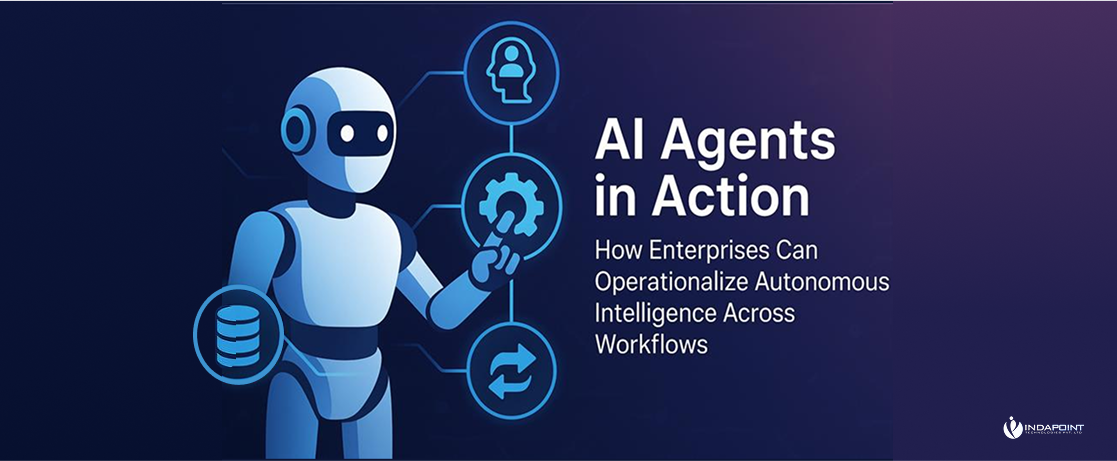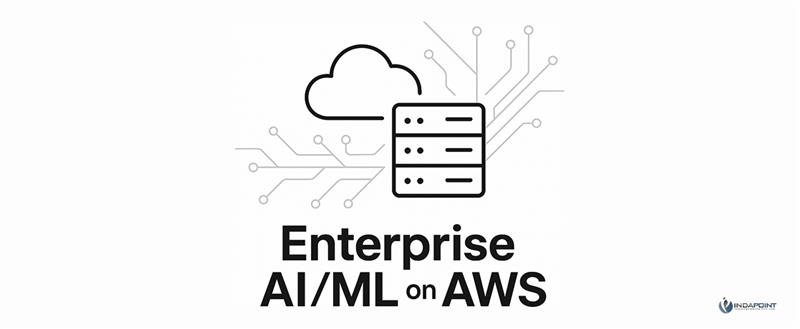Disclaimers
The information and content contained within this website is owned or provided by ITPL (IndaPoint Technologies Pvt. Ltd). The ITPL website is intended to provide information about ITPL, its organization, and the products and services it offers. However, this information is representational only, and is not contractually binding.
Although reasonable effort is used to provide accurate and up-to-date information on this website, ITPL makes no warranties or representations as to the accuracy, availability or completeness of any information contained within, and assumes no liability, obligation or responsibility for any errors or omissions in the content of this website. ITPL may make modifications, improvements, corrections and/or changes to this web site and these Terms of Use at any time without notice. ITPL is not responsible for any form of cached content captured from this website. ITPL may terminate website access at any time without notice.
ITPL shall not be liable for any direct, indirect, incidental, consequential, special exemplary, punitive or other damages or injury resulting from access to, or inability to access, this website, or from reliance on any information contained within. You agree to indemnify and hold ITPL harmless for all claims, losses and expenses resulting from your access to, interaction with, or inability to access this website. Such access and interaction includes, but is not limited to, a violation of these Terms of Use. Without limiting the foregoing, everything on this site is provided to you “as is” and “as available” without warranty of any kind, either expressed or implied, including, but not limited to, the implied warranties of merchantability, fitness for a particular purpose, or non-infringement of intellectual property rights of third parties.
Copyrights
The names, images, logos and pictures identifying ITPL and ITPL services are proprietary marks of IndaPoint Technologies Pvt. Ltd . This and other website content is protected under applicable copyright and trademark law. The posting of such content does not constitute a waiver of any ITPL or third-party rights in or related to such content, or a transfer of any such rights to any third party.
International
The ITPL website may contain information about products or services that may or may not be available in any particular country or region of the world. No part of this website should be construed as a promotion or solicitation for any product or service, or for the use of any product or service, that is not authorized by the laws and regulations of the country within which you are located.
Third-Party Website
The ITPL website may provide links or references to other websites not affiliated with ITPL. ITPL is not responsible for, cannot make any assurances regarding the privacy of, and makes no representation as to the accuracy of the content of such websites. ITPL shall not be liable for any damages, expenses, or injury arising from access to such websites. Links to other sites are provided only as a convenience to users of the ITPL website, and the inclusion of a link does not imply endorsement of the linked site by ITPL.
Password Security
Passwords may be required to access certain areas of the ITPL website. ITPL is not responsible for the security of such passwords. Password security, and all website activity related to a specific password, is the sole responsibility the password owner. Passwords must not be disclosed to any third party. ITPL must be notified immediately if password security has or is believed to have been compromised.
Privacy
ITPL may monitor the usage of this website at any time without notice. ITPL may collect data from you that you provide voluntarily, such as your name, postal address, email address, telephone number and other personal information. The information we collect is used to contact you to provide you with information you have requested or that we believe may be of interest to you. This information may also be used to improve the content of our website. Your information may be transferred for processing and use to other countries and regions of the world. The information you send to us is not sold or transferred to others outside our company, with the exception of data that may be transferred to an outside fulfillment company for processing and mailing purposes only. Impersonal data, such as questions, comments, ideas and suggestions shall be deemed non-confidential, and ITPL shall be free to disclose and use the same, without any obligation whatsoever to you, for any purpose and through any means. If at any time you do not wish us to contact you, or if you have questions concerning our privacy practices, please contact us at [email protected].
Legel
In the event that any portion of these Terms of Use is held to be unenforceable, the unenforceable portion shall be construed in accordance with applicable law as nearly as possible to reflect the original intent of the parties, and the remainder of the provisions shall remain in full force and effect. ITPL’s failure to insist upon or enforce strict performance of any provision of these Terms of Use shall not be construed as a waiver of any provision or right. Neither the course of conduct between any party referred to within nor trade practice shall act to modify any provision of these Terms of Use. These Terms of Use, and any disputes arising out of or related to the use or services of this website, shall be governed by, construed, and enforced in accordance with the laws of the State of Gujarat, India.
Our Blogs: Feel the Beat of Innovation
Stay in sync with the latest in technology and business transformation.

AI Agents in Action: How Enterprises Can Operationalize Autonomous Intelligence Across Workflows
AI agents are transforming enterprise automation with agentic AI and multi-agent systems. From RAG chatbots to Claude agents and orchestration layers, they streamline enterprise AI workflows. Businesses can now build no-code AI tools, accelerating their business AI strategy. Operationalizing these tools empowers scalable, intelligent automation across finance, IT, and customer service—marking a new era in enterprise AI.
June 30,2025

AWS Services for AI/ML: The Definitive Enterprise Guide
Explore how AWS empowers enterprises with scalable AI/ML solutions. From data storage and model training to MLOps and edge AI, this guide covers the full spectrum of AWS services. Learn how leading companies streamline development, ensure compliance, and accelerate innovation with AWS’s powerful AI/ML ecosystem.
June 27,2025

Comparative Analysis of AI Development Platforms
This blog explores and compares leading AI development platforms like AWS SageMaker, Azure ML, TensorFlow, and Keras. It covers their strengths, ideal use cases, pricing, real-world applications, and emerging trends like AutoML and Edge AI. Whether you're a startup or an enterprise, this guide helps you choose the right platform to scale your AI journey effectively and efficiently.
June 23,2025




